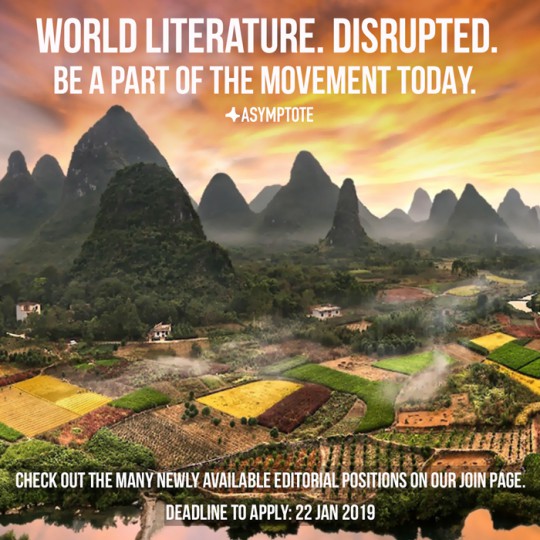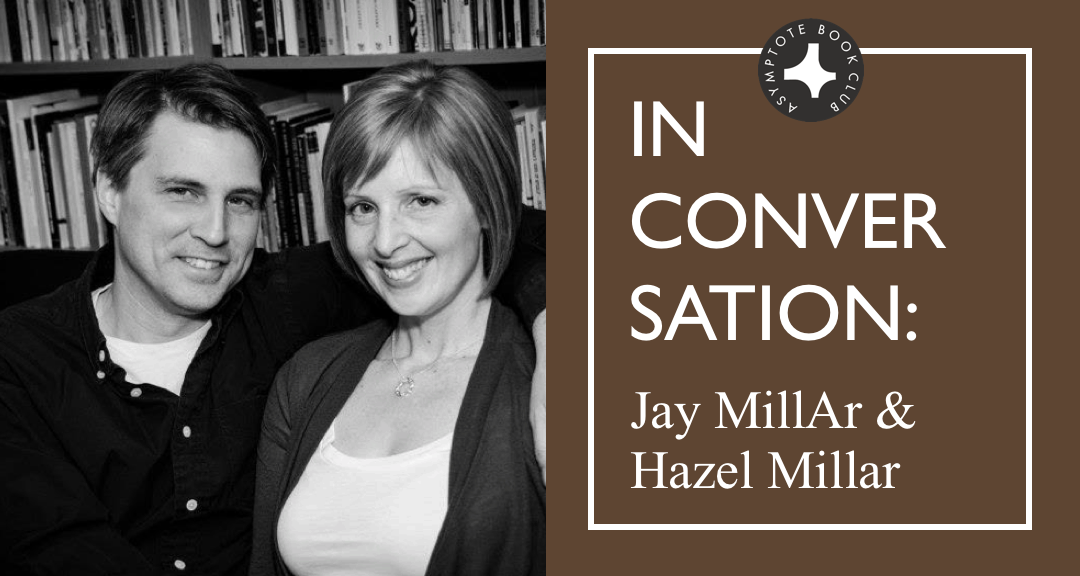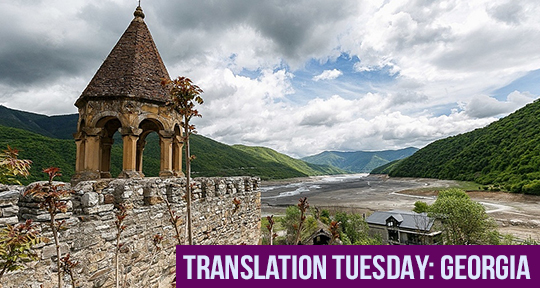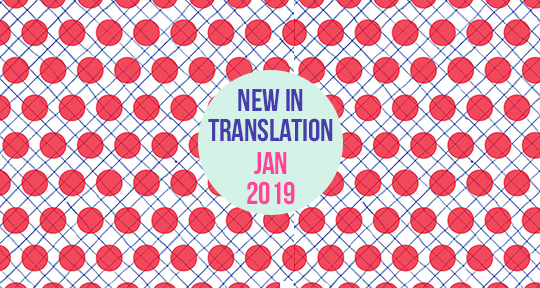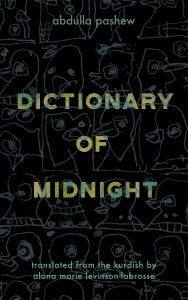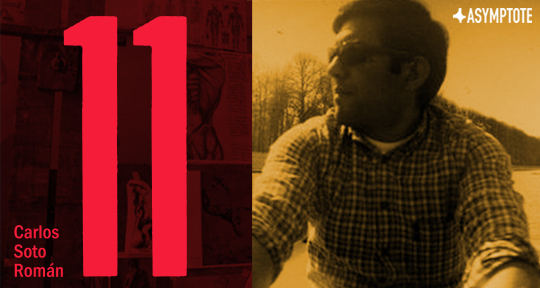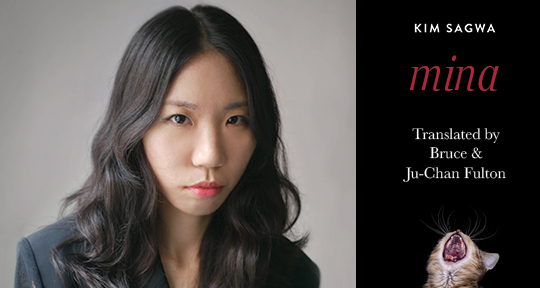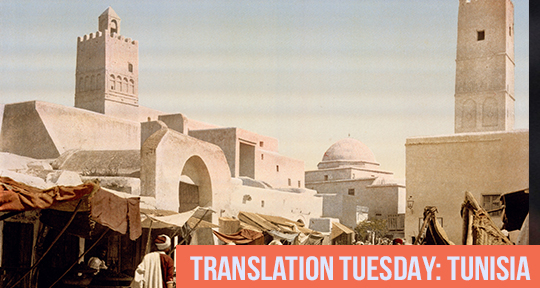Our final Asymptote Book Club selection for 2018 was The Barefoot Woman, Scholastique Mukasonga’s “haunted and haunting love letter” to her mother. In this latest edition of our Book Club interview series, translator Jordan Stump tells Asymptote’s Alyea Canada why he leapt at the chance to translate both The Barefoot Woman and Scholastique Mukasonga’s earlier memoir, Cockroaches, and why “this is a really good time for translation.”
Already broken a few New Year’s resolutions? How about making one you’ll really enjoy? Like reading the world with Asymptote Book Club, now open to E.U. residents! It’s still not too late to pledge to read adventurously in 2019: Sign up for the Asymptote Book Club by Jan 16 and receive your first book in January!
Alyea Canada (AC): How did you come to translate The Barefoot Woman? What drew you to Scholastique Mukasonga’s work in general and to this book in particular?
Jordan Stump (JS): It was Jill Schoolman who introduced me to Mukasonga’s work, not long after Notre-Dame du Nil was published. I was immediately taken by it, so when the chance to translate Cockroaches and The Barefoot Woman came along, I leapt at it immediately. I translate books that say something in a way that strikes me as so perfect I want to try to say it myself—like learning to play a piece of music you particularly love instead of simply listening to it. Reading is like listening; translating is like playing. There are always many reasons why a given book has that effect on me, but in this case I loved the sharpness of Mukasonga’s eye, the graceful construction of her chapters, the way a story wrapped up in unimaginable loss is told with a little smile, and the way in which that smile sometimes abruptly disappears.



